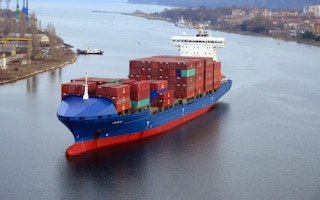Europe’s company board rooms are very much alive to the risks posed by climate change – and are also busy analysing business opportunities it might provide.
That’s among the findings of a survey by the Carbon Disclosure Project (CDP), an EU-based non-profit organisation specialising in corporate environmental information, and Acclimatise, a consultancy group which gives business advice on climate change adaptation and management.
Altogether 270 of Europe’s largest companies from across 20 countries were contacted concerning their attitudes to a changing climate.
The resulting report on the survey, Climate Change Resilience in Europe, indicates that a majority of companies see climate change having a negative impact on their operations: companies identified 780 risks to their finances compared with 379 opportunities that might be available as a result of climate change.
“
“To stay competitive, business leaders must account for climate impacts and work to understand if, how and where climate risks are material to their bottom line
John Firth, CEO of Acclimatise
Risk to reputations
The biggest risk foreseen is a reduction or a disruption in production capacity. “Extreme weather, drought and flooding may disrupt the supply of certain produce and products”, says one respondent, a spokesperson for the Maersk shipping and industrial conglomerate.
“This can directly affect the revenue of our supply chain but also can have a negative impact on our reputation and create a demand for more local sourcing.”
There are other expected risks: a large banking group in the Netherlands is concerned that climate change-related flooding could have an adverse impact on its data centres.
Energy companies worry about higher temperatures disrupting the operation of power plants, while banks are concerned about their investments in companies exposed to rising sea levels.
Boost for business
“Many of the essential conditions on which businesses rely are changing, leading to increasing prices, as well as shortfalls in the quality and supply of goods and services provided to customers”, says Steven Tebbe, managing director of CDP Europe.
Yet not everyone in Europe’s corporate world is pessimistic. The report says more than 40 per cent of companies look forward to a growing demand for their services as a result of climate change.
Construction companies in some regions of Europe might benefit from a warming climate. “Shorter and milder winters with less snow and cold can increase the productivity at some construction sites, as construction activity may experience less potential delays due to snowfall”, says Skanska AB, the Sweden-based building group.
Adaptation is key to maintaining the health of corporate finances. “Through the development of financial instruments such as catastrophe bonds, especially for regions of Africa which are particularly impacted by climate change, the financial risks posed by natural disasters and droughts can be avoided”, says Barclays, the banking group.
Staying healthy
Meanwhile Diageo, the drinks conglomerate, says that by replacing barley in its beer with less thirsty, more climate change-resistant raw materials it can gain a competitive advantage on its rivals.
“To stay competitive, business leaders must account for climate impacts and work to understand if, how and where climate risks are material to their bottom line”, says John Firth, CEO of Acclimatise.
Steven Tebbes of CDP sees a direct link between an awareness of the impact of climate change and the financial well-being of a company.
“Industry environmental transparency and performance is today a prerequisite for attracting new investments and creating new jobs – there’s increasing evidence of the links between how well a company manages environmental and climate issues and its financial performance or access to capital.”










